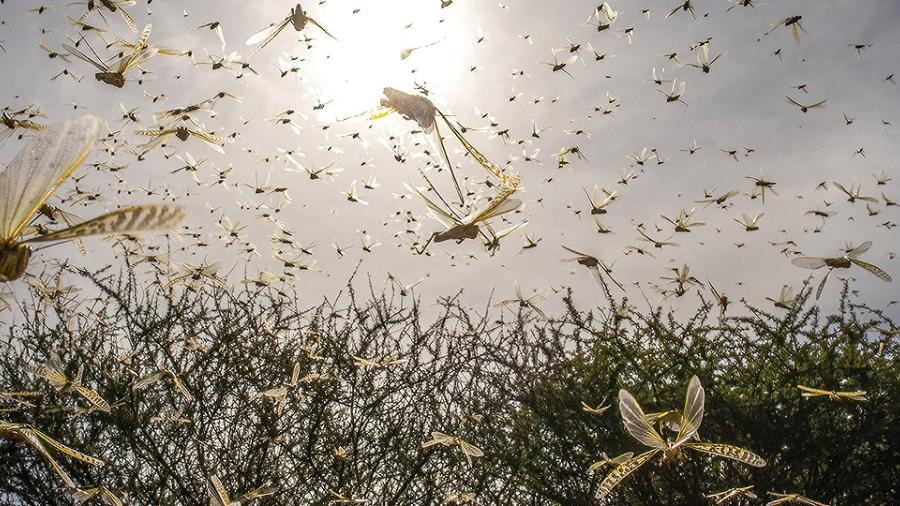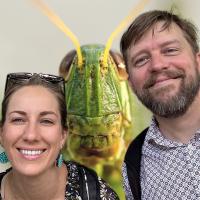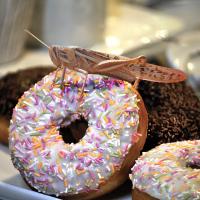Latest "Ask a Biologist" episode explores the world of locusts, grasshoppers and swarm prevention

Ask a Biologist is a website and podcast dedicated to teaching about the living world. The podcast is hosted by Charles Kazilek, executive director of K-12 outreach and advisor to the Provost on academic technology. On his podcast, he's better known as "Dr. Biology."
Exploring the complex world of locusts and grasshoppers is not only a journey into the realm of entomology but also a deep dive into the historical and ecological impact these creatures have on our environment. The most recent episode of the podcast "In the Swarm's Shadow - Locust Science", featuring Dr. Biology, presents a comprehensive view of these insects' fascinating biology and the profound consequences of their swarm behavior on ecosystems and agriculture. Rick Overson and Mira Word Ries from the Global Locust Initiative at Arizona State University join the conversation, shedding light on the intricacies of phenotypic plasticity and the environmental cues that lead to the dramatic swarming events known throughout history.
The narrative unfolds with the acknowledgment of locusts as a particular type of grasshopper, possessing the unique ability to change form in response to environmental conditions. This phenomenon is a prime example of phenotypic plasticity, illustrating how locusts can transform from solitary creatures into vast, ravenous swarms that can devastate crops and alter landscapes. The podcast touches on historical events, such as the decimation caused by the now-extinct Rocky Mountain locust, and extends to the current challenges faced by many regions worldwide, including Africa, the Middle East and Central Asia.
The immense task of controlling locust swarms calls for early detection and international collaboration. Innovative strategies are discussed, such as the "doughnut diet" that could influence locust migratory behavior and soil and crop management techniques aimed at making fields less hospitable to these insects. The conversation underscores the importance of a unified approach in combating locust invasions, emphasizing that locusts know no borders and require a collective effort to manage.
Adding a personal touch, the guests share their scientific journeys and the passion that drives their research. Mira's experience on an Ecuadorian tea farm sparked her love for science, while Rick's childhood fascination with insects led to his career in biology. They highlight their work on HopperWiki, a platform designed to connect researchers, farmers and enthusiasts in the realm of locust study and practical agriculture.
The podcast episode serves as a beacon of motivation for those looking to venture into the fields of science and agriculture. It offers a comprehensive view into the world of locusts through the eyes of dedicated experts, providing valuable insights and advice for aspiring scientists and agricultural professionals. The podcast concludes by inviting listeners to explore the Global Locust Initiative's HopperWiki, a resource hub that embodies the collaborative spirit necessary to tackle the global locust threat effectively.
In 30 minutes, this episode delves into the biological wonders of locusts, the challenges posed by their swarms, and the cross-disciplinary efforts required to mitigate their impact. The conversation not only educates but also inspires, reflecting the dynamic and collaborative nature of scientific inquiry and its crucial role in addressing pressing environmental concerns.
Copy by Charles Kazilek


